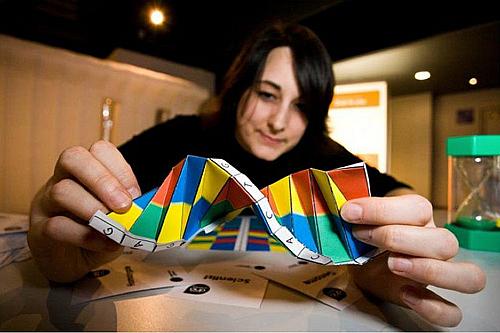Can you inherit your parents’ worst experiences?

Trauma can change how certain genes are expressed, and those changes can be passed on to children, a new study suggests.
As convention has it, there are genes and then there’s your environment. Each of us is an amalgam of these intertwining forces of nature and nurture.
In this old-fashioned dualism, the experience of a traumatic event would seem to fall squarely in the “nurture” half of the equation. A young child might witness a scene of domestic violence, for example, and bear the psychic wounds for years after. If the trauma and neglect are sustained over time, the child might suffer the debilitating effects of toxic stress. But can the experience of trauma go so far as to influence the “nature” half of the equation?
That intriguing possibility was given a boost by new research that suggests extremely traumatic events can change the way our genes — and those of our children — function.
Most notably, new evidence from a team led by Mount Sinai Hospital researcher Rachel Yehuda suggests that genetic signs of trauma can be transmitted from parents to children through changes in how trauma-sensitive genes are expressed.
For the study, published in the journal Biological Psychiatry, researchers looked at the genetics of 32 Jewish Holocaust survivors who had been in Nazi concentration camps, had endured or witnessed torture, or who were forced to flee and hide during World War II. They also looked at the genes of the survivors’ children. Jewish families living outside of Europe during the war made up a control group for the study.
The researchers found something remarkable: There were epigenetic changes in the region of a gene that helps regulate stress in both the Holocaust survivors and their children, but no such alterations were found in parents or children of the control group. In their conclusion, the researchers say these findings mark a first:
This is the first demonstration of transmission of pre-conception parental trauma to child associated with epigenetic changes in both generations, providing a potential insight into how severe psychological trauma can have intergenerational effects.
We don’t usually think of trauma as something that can be passed down — or if we do, we imagine it traveling via relationships or behavior, the emotional bequests that trickle down the generations from parents to children. But this research is actually pointing to changes at the genetic level. And trauma’s genetic fingerprints aren’t just showing up at the level of genes in the victims; they’re being passed on to the next generation.
What this actually means for the health of children of trauma victims isn’t yet clear. And it should be said that scientists are still unraveling exactly how this all works. A little terminology is unavoidable: Genes are influenced by environmental factors through “epigenetic tags,” which send signals to our genes. While DNA sequences remain the same, the way genes are expressed can change, allowing individuals to respond to cues in their environment — extreme stress, for example. In an enviable bit of explanatory journalism on the Holocaust study for The Guardian, Helen Thomson notes: “[This] work is the clearest example in humans of the transmission of trauma to a child via what is called 'epigenetic inheritance' - the idea that environmental influences such as smoking, diet and stress can affect the genes of your children and possibly even grandchildren."
While the genetic angle of this new study makes it especially fascinating, it’s not the first bit of research to find that trauma and its after-effects can be biologically transmitted from mother to child. Earlier work by the same researcher, Rachel Yehuda, looked at mothers in New York who were pregnant during the attacks of Sept. 11, 2001. The research team found that mothers who developed post-traumatic stress disorders in the wake of the attacks gave birth to children with lower cortisol levels and greater risk of developing PTSD later in life.
And this blog has written before about research that suggests that children who experience family trauma have shorter telomeres — bits of DNA at the tips of our chromosomes that can be read as indicators of biological aging — than their peers.
These studies are part of emerging body of research that is diligently unraveling the ways in which trauma and severe stress become embedded not just in our minds but our bodies as well, all the way down to our DNA. And as this latest study suggests, perhaps the DNA of our children as well.
[Photo by Duncan Hull via Flickr.]
